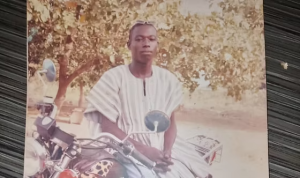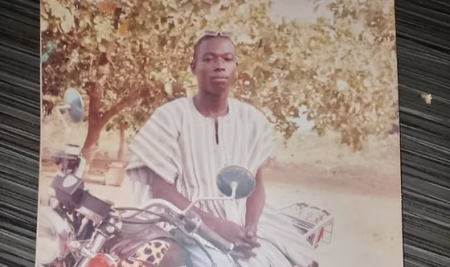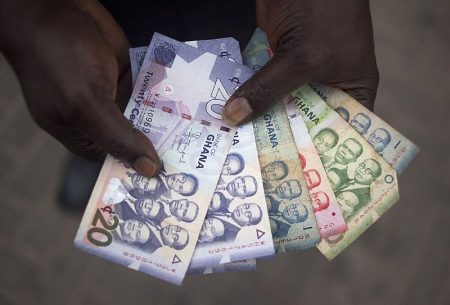Shatta Wale, the prominent Ghanaian dancehall artist, recently underwent a spiritual cleansing ceremony at Teshie’s Next Door Beach, a significant event following his release from the custody of the Economic and Organised Crime Office (EOCO). This ritual, overseen by the Teshie Gbuglah Mantse, Original Nii Martey Laryea I, aimed to purify Shatta Wale, whose real name is Charles Nii Armah Mensah, from any negative energy or spiritual repercussions stemming from his involvement in an ongoing international fraud investigation. The cleansing ceremony holds symbolic weight, representing Shatta Wale’s effort to publicly separate himself from the controversy and reaffirm his innocence.
The investigation centers around a luxury Lamborghini Urus, a vehicle flagged by both the FBI and the U.S. Department of Justice due to its connection to a $4 million fraud case. The car’s ownership history traces back to Nana Kwabena Amuah, a Ghanaian currently incarcerated in the U.S. for his participation in the elaborate fraud scheme. Shatta Wale’s possession of the vehicle placed him squarely within the scope of the investigation, leading to his arrest and subsequent detainment by EOCO.
Following several days in custody, Shatta Wale was granted bail on August 21st. The initial bail amount of GHS 10 million was later reduced to GHS 5 million, requiring two sureties. He is also mandated to report to EOCO three times a week as a condition of his release. While these legal proceedings continue, the spiritual cleansing ceremony adds another layer to the unfolding narrative, reflecting the cultural context within which the legal battle is taking place.
Shatta Wale maintains his innocence, asserting that he acquired the Lamborghini “off the street” from an individual possibly named “ZAK.” This claim, however, is contradicted by the evidence presented to investigators. The only documentation Shatta Wale has provided is a customs declaration directly linked to Nana Kwabena Amuah, the convicted fraudster. This discrepancy raises significant questions about Shatta Wale’s knowledge of the car’s true origins at the time of purchase and casts doubt on his narrative of an innocent acquisition.
The investigation and the surrounding controversy have undoubtedly impacted Shatta Wale’s public image. The spiritual cleansing ceremony can be viewed as a strategic move to regain public favor and distance himself from the negative connotations associated with the fraud case. In a society where spiritual beliefs hold significant influence, such a ritual carries symbolic weight and can be interpreted as an act of purification and a reaffirmation of innocence. It also serves to engage his fanbase and maintain their support during this challenging period.
While the legal proceedings continue and the investigation unfolds, Shatta Wale’s decision to undergo the cleansing ritual adds a cultural and spiritual dimension to the story. It highlights the intersection of legal processes and personal beliefs, particularly within the Ghanaian context. Whether this act will significantly impact public perception or the outcome of the legal case remains to be seen. As of now, neither Shatta Wale nor his representatives have offered any public statements regarding the spiritual ceremony or its intended meaning, leaving room for speculation and interpretation. The ongoing legal battle, coupled with this spiritual cleansing, creates a complex and multifaceted narrative that continues to capture public attention.














